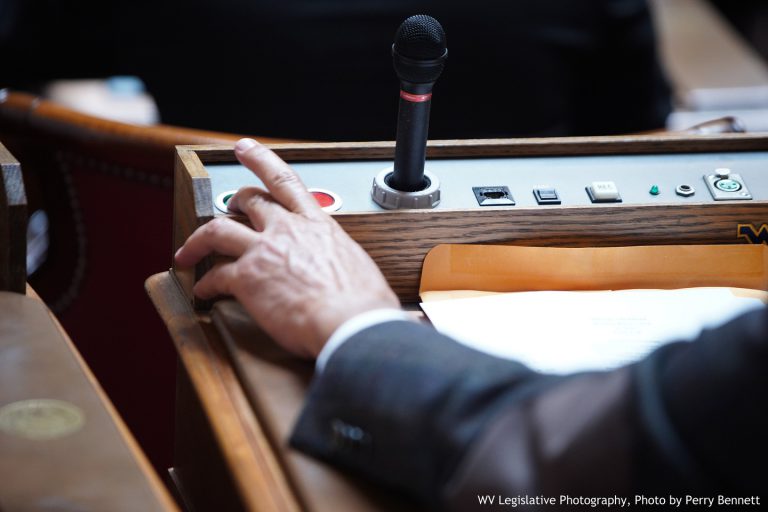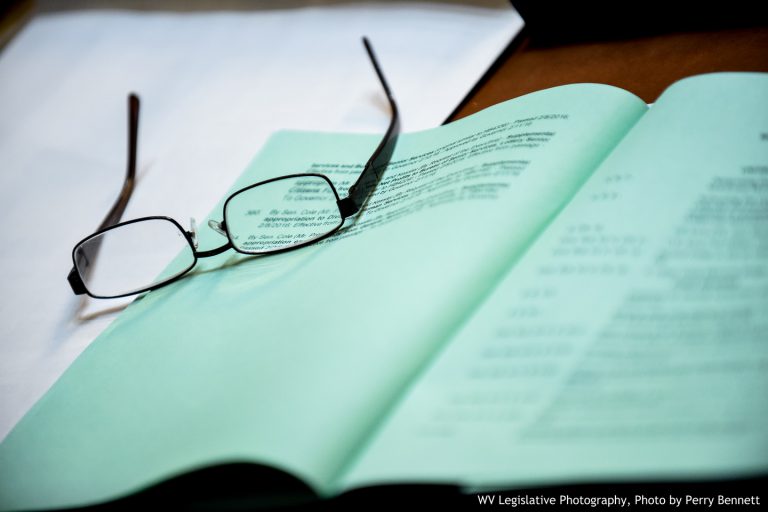As of 4 p.m., Wednesday, January 19, 2011, the eighth day of the 80th Legislature’s 1st Regular Session, 219 bills have been introduced in the Senate. A sampling of bills introduced include:
Senate Bill 10 would provide for a supplement of three percent to be paid to all annuitants of the Public Employees’ Retirement and Teachers’ Retirement Systems at the time they reach the age of 70.
Senate Bill 14 would reduce state income taxes for state and federal retirees by increasing the exemption on retirement income in calculating the federal gross income for state personal income tax purposes.
Senate Bill 21 would specify that a minimum share of coalbed methane severance tax revenue be distributed to producing counties in an amount at least equal to the share received by nonproducing counties It would also provide that the distribution method for severance tax revenues for coalbed methane producing and nonproducing counties be used.
Senate Bill 22 would increase the amount of net terminal income allocated to the Cultural Facilities and Capitol Resources Matching Grant Program Fund.
Senate Bill 33 would provide a system to assist farmers to make the transition from growing tobacco to growing other crops or pursuing other agricultural endeavors. The bill includes provisions that create the “Transition Program for Tobacco Farmers” as well as the “Transition Program for Tobacco Farmers’ Fund.” The bill also provides for use of the Tobacco Settlement Fund for the program.
Senate Bill 36 would authorize public universities and colleges with an accredited education program to operate public schools in cooperation with the local county board of education. It would establish a pilot project allowing only West Virginia University and Marshall University to operate public schools in cooperation with the Monongalia and Cabell County Boards of Education for school years beginning prior to 2013.
Senate Bill 38 would require a court to conduct a hearing at the time it sentences a defendant to jail to determine the defendant’s ability to pay the costs of the defendant’s incarceration. The bill would require the court to require the defendant to pay for up to thirty days of incarceration in jail if it finds the defendant is or will be able in the foreseeable future to pay.
Senate Bill 43 would establish a procedure that requires a claimant that files an asbestos case after the effective date of this bill to provide information to all defendants about all claims filed or anticipated to be filed by that claimant against asbestos bankruptcy trusts, a mechanism for the defendant to challenge those claims, a procedure for sanctions by the court, and for set-offs for those claims.
Senate Bill 44 would provide an earned income tax credit from the state personal income tax for taxpayers with qualifying children. The earned income tax credit would be equal to twenty percent of the federal credit.
Senate Bill 57 would allow Supreme Court Justices to be elected on a nonpartisan ballot. This would include all details; timing and frequency of election; ballot design and printing; separation from partisan ballot; nonpartisan election of justices; filing announcement of candidacies; withdrawal of announcement of candidacies; refund of paid filing fees; and ballot content and form.
Senate Bill 63 would extend the number of prohibited products included in the definition of “Salvia divinorum” (also known by the common names of “Salvia,” “Ska Pastora,” “Shepherdess’s Herb,” “Maria Pastora,” “yerba de Maria,” “Purple Sticky” and “Sally-D,” “Fake weed”, synthetic marijuana”, “K2 or Spice.”) and any of its derivatives to be covered by the criminal penalties article of the Uniformed Control Substances Act.
Senate Bill 67 would require persons arrested for a felony to submit to a DNA sample; and would provide procedures for expungement if the felony has been dismissed.
Senate Bill 69 would clarify that fire chiefs and line officers working with paid and volunteer fire departments are employees that are provided immunity under the Governmental Tort Claims and Insurance Reform Act.
Senate Bill 72 would provide that references in the constitution, the code, joint rule, or rule of the body to the President of the Senate and Speaker of the House of Delegates, or presiding officer, include any member authorized by the respective body, by rule or otherwise, to act in the place of the President of the Senate or the Speaker of the House of Delegates.
Senate Bill 82 would declare a child’s right to nurse and makes a statement by the Legislature that nursing in a public place is socially acceptable. A mother would be able to breast feed a child in any location, public or private, where the mother and child are otherwise authorized to be.
Senate Bill 83 would limit the landowner from civil liability for injuries that may occur to person or property on the landowner’s property or surrounding property caused while hunting.
Senate Bill 89 would include certain records of the Division of Juvenile Services in the exemptions from Freedom of Information Act requests.
 This morning the House received a message from the Senate regarding that body’s passage of House Bill 2001 with amendments. The House refused to concur with the proposed amendments and decided to ask the Senate to rescind their amendment.
This morning the House received a message from the Senate regarding that body’s passage of House Bill 2001 with amendments. The House refused to concur with the proposed amendments and decided to ask the Senate to rescind their amendment. 




 The Senate introduced 96 bills and passed one in a brief late morning floor session..
The Senate introduced 96 bills and passed one in a brief late morning floor session.. This morning the House received a committee report from Government Organization that recommended the House refer
This morning the House received a committee report from Government Organization that recommended the House refer  The annual bell ringing ceremony honoring Dr. Martin Luther King, Jr.’s birthday was conducted today on the North side of the Capitol building. The lawmakers in attendance were accompanied by the Governor and other members of the West Virginia Board of Public Works, Congresswoman Capito as well as the members of
The annual bell ringing ceremony honoring Dr. Martin Luther King, Jr.’s birthday was conducted today on the North side of the Capitol building. The lawmakers in attendance were accompanied by the Governor and other members of the West Virginia Board of Public Works, Congresswoman Capito as well as the members of  The House began the day by joining hands for a moment of prayer in honor of Martin Luther King, Jr. Day.
The House began the day by joining hands for a moment of prayer in honor of Martin Luther King, Jr. Day. The Senate introduced 6 bills and hosted the Appalachian Children’s Chorus during a brief late morning floor session.
The Senate introduced 6 bills and hosted the Appalachian Children’s Chorus during a brief late morning floor session. Of the 6 bills introduced, a sampling included
Of the 6 bills introduced, a sampling included  The Senate adopted one resolution and recalled another during a brief late morning floor session. They also introduced 6 bills.
The Senate adopted one resolution and recalled another during a brief late morning floor session. They also introduced 6 bills.